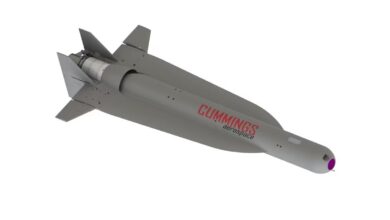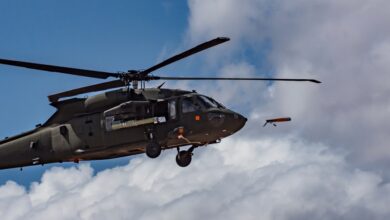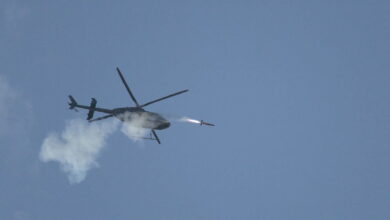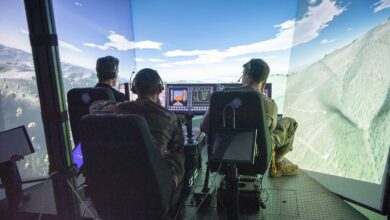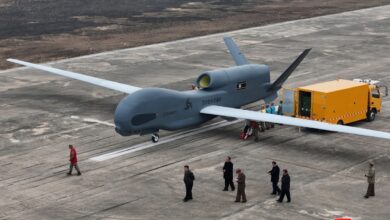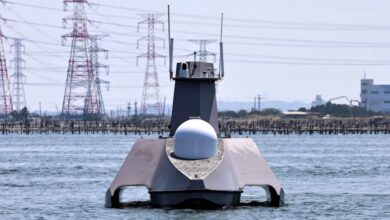A Hyderabad-based unmanned military systems manufacturer claimed to have developed an autonomous counter-drone system capable of protecting an area of 1,000-2,000 square kilometers (386-772 square miles).
Called “Indrajaal,” the wide-area system is designed to counter a host of unmanned aerial threats such as “unmanned aerial vehicles (UAVs), incoming weapons, loitering munitions,” The Hindu wrote, citing an official from system developer, Grene Robotics.
Leveraged Technologies
The system leverages 10 technologies based on artificial intelligence, robotics, and cybersecurity to provide real-time situation awareness round the clock and can be integrated within the current weapons infrastructure.
“Indrajaal is capable of identifying, assessing, deciding, acting, and evolving autonomously in real-time, round the clock. Whether the threat is single or multiple or a combination of UAVs, loitering munitions and such, the system is capable of countering all such threats,” Grene Robotics executive director Gopi Reddy stated to The Hindu.
India
might need that dome regarding recent drone attacks in Jammu & Kashmir and the situation in China
.
A 'wide-area autonomous drone defence dome called ‘Indrajaal’ which can protect a large area of 1000-2000 sq. km e.g. loitering munitions'https://t.co/19DfoXMQQ2 pic.twitter.com/9lnYqMdIlz
— Felix Woessner (@FxWoessner) July 9, 2021
Upgrade to India’s Counter-Drone Infrastructure
Weaknesses in India’s counter-drone infrastructure were exposed in last month’s drone attack at the Jammu Air Force Station, which jolted the government into procuring better systems.
Reddy said that the idea behind developing the system is to move away from the present “point-based” anti-UAV systems and adopt a more holistic solution to the problem in the form of a defense shield.
He said “Indrajaal” can provide multiple solutions to unmanned aerial threats by identifying, assessing, and acting against the threat and neutralizing, capturing, or stalling them in real-time.
Six Indrajaals to Secure India-Pak Border
Reddy claimed that only half a dozen “Indrajaals” can secure India’s over 3,000-kilometer (1,864-mile) long western border with Pakistan, which otherwise would require hundreds of conventional counter-drone systems to protect.
“We have been working on Indrajaal for the last two years. Once approved, we can set up a pilot plant covering 100-250 sq. km in 90-120 days and up to 2,000 sq. km in three months from there. We can work with legacy systems or deploy new ones using our data,” the executive director concluded.



